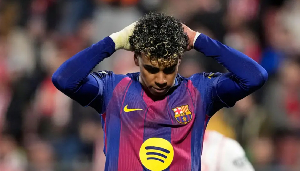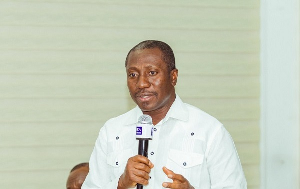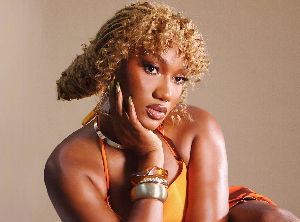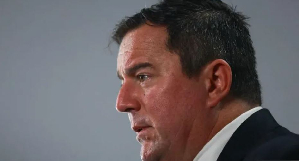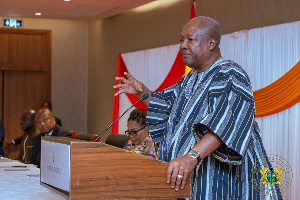Accra, May 23, GNA - Ms Mardey Ohui Ofoe, Executive Director of the Foundation for Female Photojournalists has said norms and socio-cultural beliefs and practices continue to encourage gender inequity in society. She observed that the situation was pushing the fundamental human rights of women and girls, such as the right to education, life, movement
and shelter among other rights to the backyard of society. "In cases where inequity persists, it largely has negative implications for women's capacity to benefit from societal resources," sh e added. Ms Ofoe made these remarks during this year's Gender Talk on the Universal Declaration on Human Rights (UDHR) in Accra organized for stude nts of Ghana Institute of Journalism and the African University College of Communication. The talk focused on Article 2 of the UN Universal Declaration of Hu man Rights (UDHR), which states: "Everyone is entitled to all the rights and freedoms set forth in this Declaration, without distinction of any kind, such as race, colour, sex, language, religion, political or other opinion , national or social origin, property, birth or other status." Ms Ofoe noted that student journalists, who were the communicators of the future, were privileged to push gender equity to ensure the participation for women and men in the development process. "Ghana cannot become a middle income country if the majority of the
population is discriminated against," she added. She said interventions by international efforts through declaration s and treaties such as the UDHR, the solemn Declaration on Gender Equity, a nd Convention on the Elimination of all forms of Discrimination Against Wome n (CEDAW), have not taken roots in our societies. She explained that everyday women were being discriminated against because of their sex, preventing them from enjoying equal opportunities l ike their male counterpart irrespective of their capabilities. According to her ensuring gender equity is ensuring access to fundamental human rights of all people. She expressed the concern that for Ghana to maintain its status as the oasis of peace in the West African Sub-Region there should be democracy, which could only be as a result of equal participation of both men and wo men in decision making.
"Democracy can only thrive on inclusiveness", She reiterated. Afua Darkoa Koranteng, Women's commissioner of the Ghana Institute of Journalism, mentioned that one prime principle of democracy was the promotion of equitability. She said there was inequality in the representation of women in decision making processes in Ghana, adding that women made up more than 5 0 percent of the population and yet only 8.3 percent of parliamentarians ar e women. The President of the Student Representative Council of the African University College of Communication, Nana Glover said without right to information, gender inequity will continue to be a canker to development. 23 May 10
Regional News of Sunday, 23 May 2010
Source: GNA


